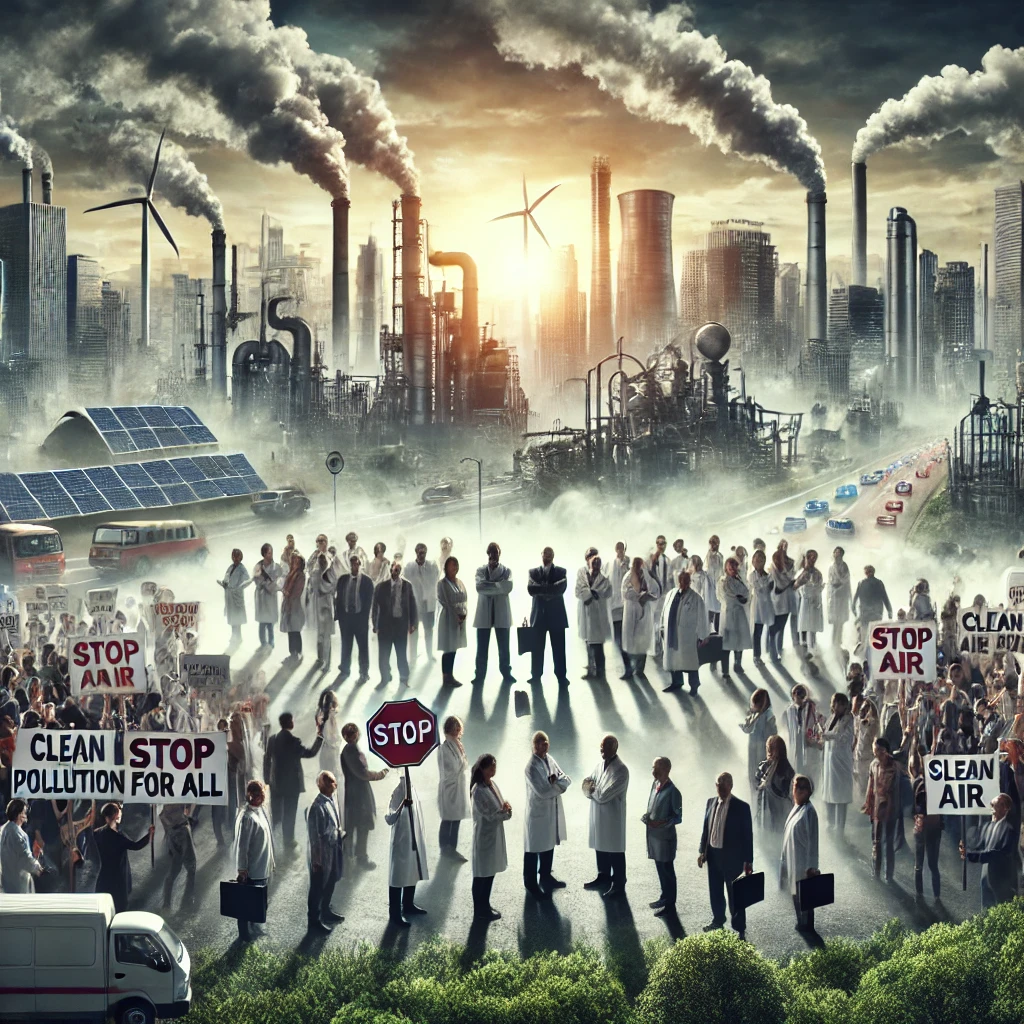Global Health and Climate Leaders Unite to Tackle Air Pollution: A Call for Urgent Action at the 2025 WHO Conference
Co-hosted by WHO and the Government of Colombia, the conference will bring together political leaders, health professionals, researchers, representatives from UN agencies, and members of civil society.

In an unprecedented global movement, more than 47 million health professionals, patients, advocates, representatives from civil society organizations, and individuals have united to demand immediate action against air pollution, highlighting its catastrophic impact on public health and the environment. This collective call to action, led by the World Health Organization (WHO) in collaboration with leading international health institutions, will be a focal point of the Second Global Conference on Air Pollution and Health, scheduled to take place in Cartagena, Colombia, from March 25 to 27, 2025.
The Deadly Toll of Air Pollution
Air pollution is a silent killer and a significant driver of noncommunicable diseases (NCDs). According to WHO, an estimated 7 million people die each year due to exposure to polluted air, with many succumbing to respiratory and cardiovascular diseases. Alarmingly, around 2.1 billion people, primarily in low-income and rural areas, remain exposed to hazardous household air pollution from inefficient and polluting cooking methods, further exacerbating health inequalities worldwide.
"Forty-seven million voices from the global health community are calling for bold, evidence-based action to address air pollution, and their plea must be heard," stated Dr. Tedros Adhanom Ghebreyesus, WHO Director-General. "WHO continues to support nations in adopting and enforcing air quality policies that save lives. The upcoming conference in Cartagena provides a critical platform for governments to make tangible commitments and implement life-saving interventions."
A United Front: Governments, Scientists, and Civil Society Join Forces
Co-hosted by WHO and the Government of Colombia, the conference will bring together political leaders, health professionals, researchers, representatives from UN agencies, and members of civil society. The goal is to accelerate a unified global agenda for clean air—one that not only addresses public health challenges but also mitigates climate change, fosters sustainable development, and enhances the quality of life for future generations.
Recognizing the detrimental effects of air pollution, the health community is urging policymakers to adopt ambitious strategies, including:
- Strengthening and enforcing air quality regulations in alignment with WHO’s Global Air Quality Guidelines.
- Accelerating the transition from fossil fuels to renewable energy sources.
- Establishing low-emission zones in urban areas to reduce transportation-related pollution.
- Promoting sustainable agriculture and waste management practices.
- Increasing investments in clean energy solutions for households, particularly in low-income regions.
The Intersection of Air Pollution, Climate Change, and NCDs
The devastating link between air pollution and noncommunicable diseases cannot be overstated. NCDs such as heart disease, stroke, lung cancer, and chronic respiratory illnesses are among the leading causes of death worldwide, accounting for approximately 41 million deaths annually. Exposure to fine particulate matter (PM2.5) and other air pollutants significantly elevates the risk of these diseases, making air quality improvement a critical component of global health strategies.
“Addressing air pollution is not just about improving environmental conditions—it is a crucial public health intervention,” emphasized Dr. Maria Neira, WHO Director for Environment, Climate Change, and Health. “Clean air is a fundamental human right, recognized by the UN General Assembly. We must urgently scale up efforts to transition from coal-fired power plants to renewable energy, expand sustainable transportation systems, and promote cleaner cooking solutions in homes and healthcare facilities.”
Strengthening Global Air Quality Standards
As part of its commitment to monitoring and improving air quality worldwide, WHO, in collaboration with the Swiss Tropical and Public Health Institute (Swiss TPH), recently updated the 2025 Air Quality Standards database. This comprehensive database now covers air pollution regulations in approximately 140 countries, showcasing the progress and challenges in implementing measures to protect public health.
Governments attending the conference in Cartagena are expected to pledge concrete actions, including setting and enforcing stricter air quality regulations that align with WHO guidelines. By doing so, nations will not only reduce air pollution-related deaths but also contribute to global climate goals and sustainable economic development.
Looking Ahead: The 2025 UN High-Level Meeting on NCDs
The momentum generated by the Cartagena conference will extend to the upcoming 2025 UN High-Level Meeting on Noncommunicable Diseases. Global leaders will be urged to integrate air pollution reduction into their broader strategies for combating NCDs, ensuring a holistic approach to public health, environmental protection, and sustainable development.
The health community is making it clear: the time for action is now. With millions of lives at stake, addressing air pollution must be a top priority for governments worldwide. The commitments made at these high-level meetings will serve as a blueprint for a healthier, cleaner, and more sustainable future for all.
Conclusion: A Collective Responsibility for Clean Air
As the world braces for the Cartagena conference, the stakes could not be higher. From legislative reforms and technological innovations to community-driven initiatives, the fight against air pollution requires a concerted effort at every level. Governments, industries, and individuals must work together to ensure clean air becomes a reality for all, safeguarding both human health and the planet for generations to come.
The global health community has spoken. Now, it is up to world leaders to listen, act, and deliver on the promise of a pollution-free future.
- READ MORE ON:
- Air Pollution
- World Health Organization










